Chetana-Vikas in Wardha is a Non-Profit, working for Sustainable Rural Development on focused specific areas of interventions with holistic vision.
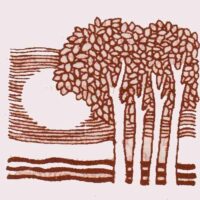
Our Background
In 1978, Ms Suman Bang, a Gandhian who was an Economist, Mr Ashok Bang, Gold Medalist in Agriculture Sciences, Researcher with Indian Agriculture Research Institute and Dr Padmaja Rani, Mathematician and Educationist came together as founding members of Chetana-Vikas. Having taken part in many social movements they believed that the basic ideas of Gram Swaraj, Nai Talim (New Education) have to be tried and built upon for real development of children, men and women, farmers and rural areas. The emphasis was on the concept of holistic development which identifies human rights as well as citizen responsibility at its core; which is an antithesis of linear development that is happening today most of the time.
Started in mid-1977 as a small, informal, non-political activist group for concerned individuals including professionally trained people working in an area of 5 villages and got finally registered into Society (Reg. No. Maharashtra 96/78 Wardha, 1978).
At the micro-level, the various aspects of micro intensive field programs are carried out in 200 villages of Wardha district, with rural women and men, adolescents and children. This is coupled with macro-level linkages in forums, fronts, networks with organizations, activists and policy-making agencies. Functions as Resource Centre for Sustainable Development in India and abroad.
The organization is registered under Statutory laws including Foreign Contribution Regulation Act (now pending for renewal), under Income Tax Act as Non-Profit, with an 80G Tax exemption certificate for the donor; with a track record of stable and sustained work for more than 35 years. The group of concerned individuals started off by focus area interventions in Child Development, Women Development & Empowerment, and, Development of Farmer and farming system. The work comprises several innovative approaches which besides bringing immediate relief, would be and are really long-lasting solutions. Instead of just patchwork, these bring a much deeper larger spread effect in course of time.

Our Vision
At Chetana-Vikas, we are constantly striving to facilitate individuals and the community to be self-dependent. With consciousness development at its core, our vision is to empower individuals and the community by educating them about their rights and duties for their holistic and sustainable development. That, we believe, is the real meaning of Swaraj.
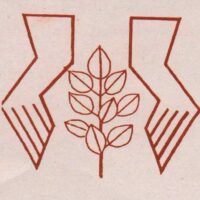
Our Objectives
For any society to thrive, prosper and be self-sustained, it needs to be conscious of the welfare of the community as a whole. Chetana-Vikas primary purpose is to achieve that and lend a hand in helping the marginalized stand on their own feet. We believe that purpose can be accomplished with the following objectives:
- To innovate and create sustainable development models in agriculture, education, child-care, economic and employment activities for the development of the community.
- To emphasize human resources development by nurturing local village cadre and leadership with various development skills through consistent and intensive training.
- To create critical consciousness among the people about the society– its present nature, challenges, and their possible solutions and peoples role therein.
- To organize people for collective action against injustice and to spread awareness about their rights and duties.
- To plan and implement programmes based on the needs of the people and bring women into the mainstream to make them self-dependent.
- To undertake systematic and scientific micro-studies and experiments on development issues for the betterment of the grassroots of the country.
Current Status
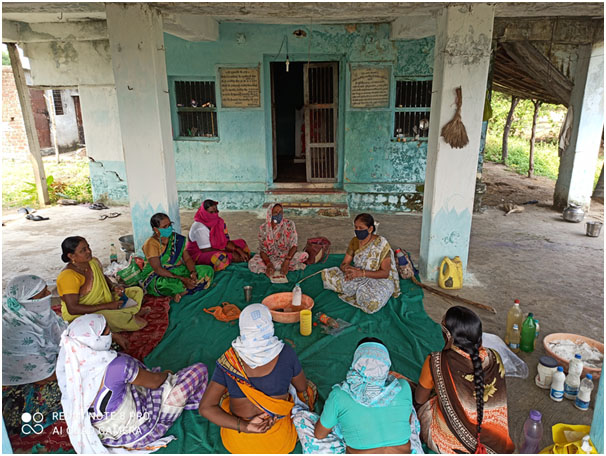
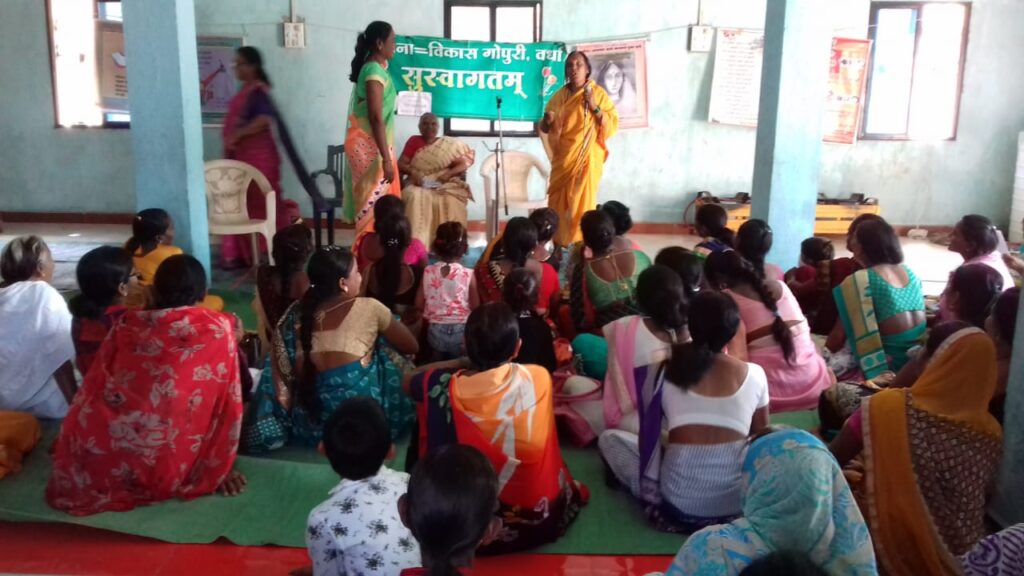
Women empowerment is accomplished by the holistic personality development of rural women who are enclosed in a ‘culture of silence’. They have no control over any material resources like land, water, forest or even financial resources.
While economic self-reliance through Self-Help Groups and Federation groups forms the main vehicle of development, this is just the start of women becoming vocal, confident, accessing individuals about their social and political rights in families and the larger communities. Their stories tell that only talking and asserting rights make an incomplete picture if not accompanied by consciousness and awareness of their own responsibilities as individuals and citizens.
This direction of work is the mainstay of every action program that is being taken up by these women. The path of self-reliance, self-governance and sovereignty leads to self-contentment as well as happiness for all. Change-makers with vision! Chetana-Vikas’s work with women is well recognized with many publications and articles taking note of the type of changes happening in the villages. The women themselves are a force to reckon with and ready for challenges of today’s times which though bringing new opportunities are coupled with ever-increasing new methods of subjugating women.
The Agriculture and Environment action programs ride on the principle of being environmentally sound, economically feasible, socially just, culturally adapted and Sustainable. People’s participation right from the stage of planning is an important aspect apart from the objectives of mainstreaming and understanding rural women’s role in Agriculture.
With increased knowledge-Attitude and Skills, farmer men and women place credence on the health of the soil and other natural resources, Biodiversity, efficient and sustainable farming practices with the prime objective of Food and Nutrition Security. The development of an Alternative marketing system is leading to ‘smart farmers’ not being bullied by the existing exploitative system.
All these by not spewing chemicals and poison in the environment and bringing ‘Safe Food’ for self and other consumers in the society. These efforts in ‘self-reliant’; farming have been well recognized in the country with a TV serial in Marathi language being aired on National Television on prime time. The 26 episode serial talks of the nature of rural problems today offer a direction that Indian farming should take to come out of ‘Agrarian distress’ based on years of solid and documented research.
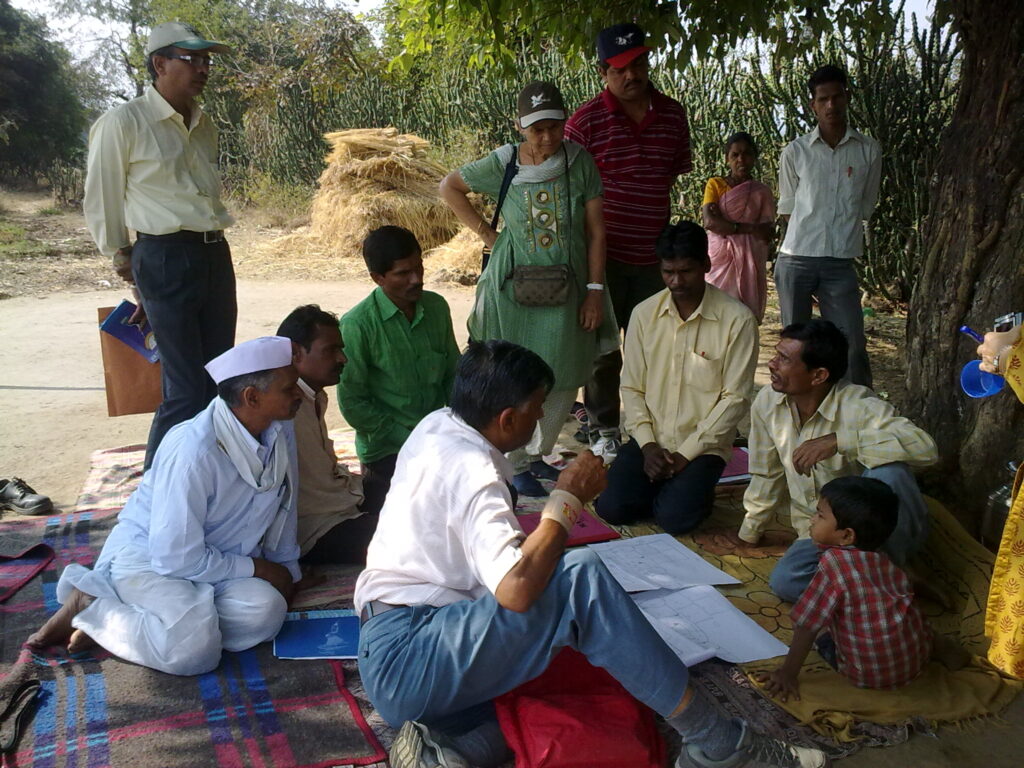
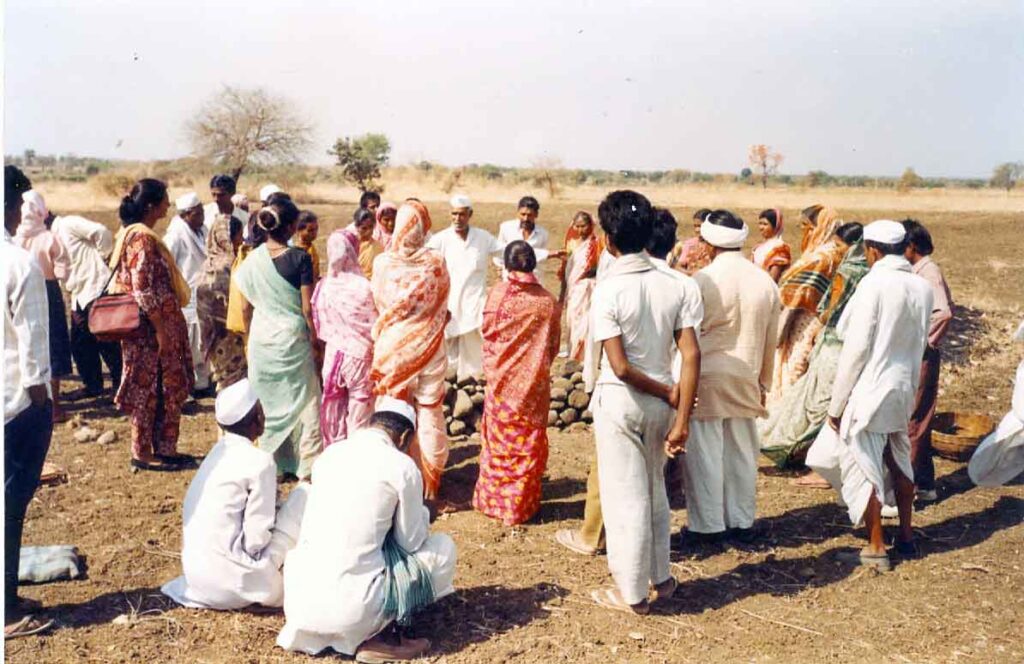
Future Challenges
The rural population is still at the lowest rung of ladder in society by way of access to food, nutrition, capital, ease of business, transport education, jobs in the face of steadily growing affluence and disparity in society. The challenge is to meet at least the five essential needs pertaining to Productivity, Profitability, Sustainability, Stability and Quality of Life for the rural families.

